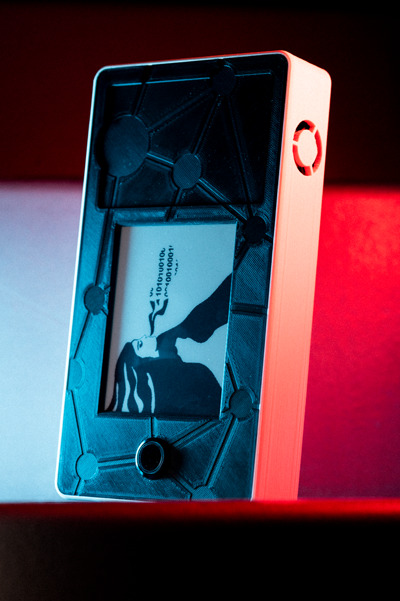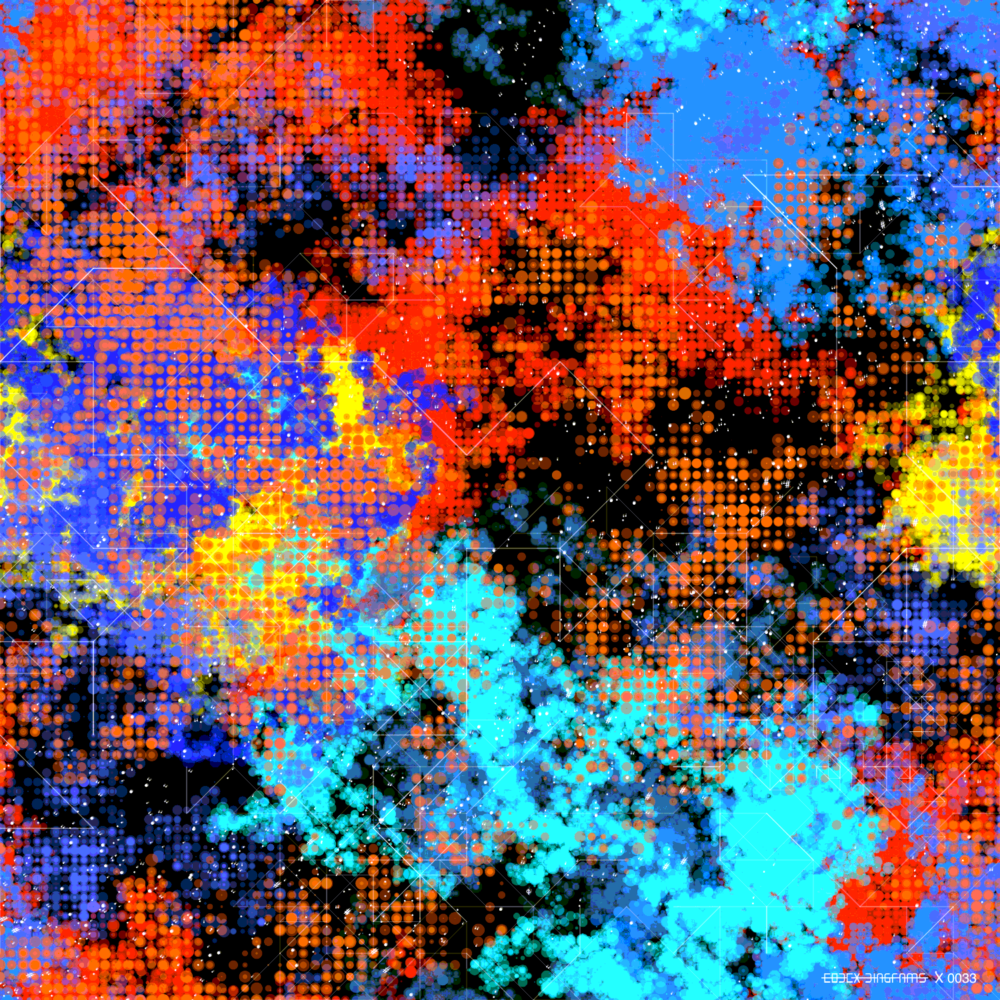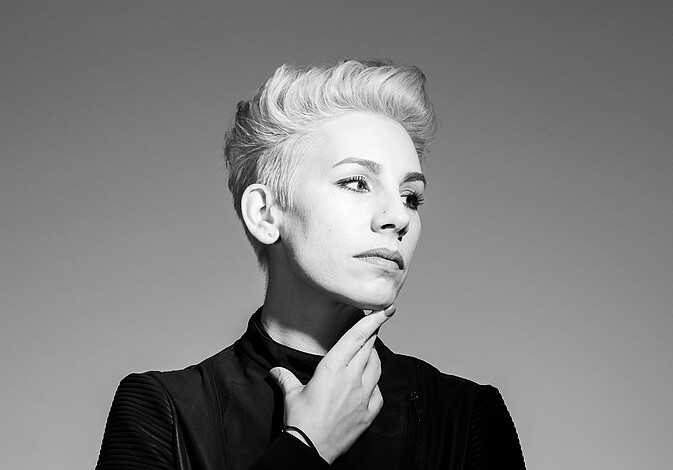Digital Art for a Right to Breathe
With “A Thousand Breaths,” the Logische Phantasie Lab (LoPh) is developing an innovative NFT project that creates an artistic registry for breathing injustices, questions how breathing is valued, and develops funding tools for advancing a Right to Breathe. “A Thousand Breaths” is one of the winning projects of the Vienna Business Agency’s 2022 Content Vienna Competition.
We talked to co-director and head of research Daniela Gandorfer about LoPh’s work and approaches.
Daniela, you are a legal and media theorist with a focus on crypto-technologies. With LoPh you are co-directing an investigative research collective dedicated to developing and implementing ethical approaches to normativity and justice in times of climate change and advancing digitalisation. In addition, you are part of the crypto-artist collective Code-X-Diagrams. What fascinates you about the field you work in?
This is a wonderful question as it allows me to begin here by already speaking for all of us. What brought us together – and what drives our fascination as well as our dedication – is threefold. For one, we share a deep commitment to social justice and community-building, which strongly informs our work. Because of that, we are curious about and sensitive to developments and phenomena that carry the potential of changing the way we live, think, and organize social and political life. Finally, we hold that decentralized collaborations across different fields and backgrounds are the key to building sustainable and livable futures for planet Earth and all its inhabitants. In a time like this, when everything seems to be unsettled, where familiar structures are crumbling and new ones are being articulated through powerful technological tools such as distributed ledger technologies, we consider it majorly important to actively engage these fields for they hold the potential for creating both vast inequality as well as more just futures. Our fascination comes from the potential for pushing towards the latter.
As for me personally, the question of law has always been a prominent concern; more precisely, in thinking what law can become in the future and how we could create decentralized legal systems that are more attentive to the material world and prevent the centralization and monopolization of political and economic power.

What has inspired you to start LoPh and “A Thousand Breaths”?
What inspired the founding of LoPh as well as its Gas Exchanges and the Right to Breathe initiative, of which “A Thousand Breaths” is part of, was a strongly felt sense of responsibility to contribute our skills and energy to a broader social cause. We have been privileged to receive education at outstanding universities (among others, Princeton University, Harvard University, UC Berkeley, Cooper Union, Melbourne University, and University of Vienna) and worked with leading figures in our respective fields. While the pursuit of education therein certainly required tremendous effort, we are aware that such achievements are made possible also by the work of many others and even having the very possibility of pursuing higher education as an option. We thus wanted to create a community dedicated to investing our learned skills in addressing urgent contemporary social and environmental justice questions. With that in mind, and provided with seed funding from Princeton University, we founded LoPh in early 2020.
At the time of LoPh’s launch, the very limits of breathing—the very limits of having even the ability to breathe—were intimately felt across the globe. The outbreak of the SARS-CoV-2 virus together with increasing concern regarding air pollution, the echoing of #icantbreathe across the screens and streets of the U.S. and beyond, and a cascade of natural catastrophes such as wildfires, hurricanes, and extreme weather events caused by human-induced climate change, were palpably shifting the physical and social atmosphere of this planet. Because of the pandemic, 2020 was also a year in which the digitalization of life rapidly expanded, alternative economic models gained broader interest, and blockchain technology increasingly developed into a governance tool.
The question that we raised, and which continues into the present, is: How to create a right to breathe that can withstand the challenges of not only a highly diverse present, but also a future increasingly dominated by powerful digital technologies? “A Thousand Breaths” is an experiment in addressing this question.
What do you think the future holds for NFT in your field of work?
An NFT (non-fungible token) is a unique digital asset. Through a smart contract – basically a program that runs on the blockchain and self-executes when predetermined conditions are met – ownership, utility, and transferability of NFTs are managed. NFTs entered public awareness through the art market when NFTs of digital art began to sell at unexpectedly high prices. However, the use cases for current and future NFTs far exceed the art market. What is important is that what the future holds is shaped by who and what engages in its development – and for what reasons. If the driving force behind new NFT use cases is the tokenization of real-world assets for the creation of new profitable markets, then chances are high that the future holds an intensification of capitalist processes. However, if enough work goes into developing alternative uses that effectively support social and environmental justice efforts, then this other future is also what we will get. Embedded within wider blockchain structures, NFTs can play a crucial role in creating fundraising and distribution mechanisms for social justice projects and providing tools for community self-governance. This is very important. As an example, it suffices to think of air pollution on the one hand, and powerful actors for whom less polluted air means less profit on the other. How then can we collectively stand up to such actors? How can we empower the important work for cleaner air and less pollution done every day across the globe? And how can such work, which often goes against economic interests, be funded?

To what extent did blockchain technology help you make this project happen? Could you have implemented it in any other way?
As mentioned, the rapid developments of blockchain technology and its functions (less so crypto currencies, which are only one of them), especially regarding governance mechanisms, urged us to already start the work on a Right to Breathe with these technologies in mind. “A Thousand Breaths: The Value of Caring for Each Breath” is a crypto-art project. It raises public awareness and thus facilitates support for a right to breathe through the affective power of art in the form of dynamic NFTs. What is more, blockchain allows for transparent and creative funding structures. In that sense, we could not have implemented it in another way.
How do you think your project can influence the public discussion on climate change and the ensuing environmental and social problems?
Part of the project is the creation of NFTs from the unique visualization of individual breaths. As indicated, art has the power to affect people and create a sensibility for phenomena otherwise considered to lie in some remote distance. A collection of breathing visualizations, measured with our custom-engineered sensing device, renders visible the often-overheard calls for a right to breathe. It demonstrates collective action and support for something we all share: the need to breathe which is intimately entangled with environmental and social conditions, and the conviction that every single breath matters and must matter – more than numbers, digits, and profit.
What were the biggest challenges in the research process for “A Thousand Breaths”?
Certainly, the initiative, and the project, is ambitious and it continuously challenges us and our ways of thinking and working. How can we conceptualize a right to breathe in the manner we attempt to? What are the current limits of the technologies we work with, and how to overcome them? How to communicate the importance of this work to a broader audience? How to fund social justice work? That said, I can only reiterate LoPh’s commitment to collaborating across different fields, geolocations, and backgrounds – and it is precisely this collaborative aspect that makes it possible for us to productively address the challenges we face.
LoPh is led by a multidisciplinary, all-female team with expertise in blockchain technology, law, creative direction and science communication. How do your diverse backgrounds contribute to your work and working culture?
The problems we face (and differently so) are complex and demand different skills and knowledge. And because the stakes are so high, it is of utmost importance to create a healthy and empowering working culture. No matter how knowledgeable one is, one’s own perspective, way of thinking and imagining are necessarily limited. It is formed through the experiences we made and make, and the environment in which we lived and live. Not only does our work benefit from so many different perspectives, our working culture continuously attunes us to the always present potential of thinking outside the box.
Creative work can be accompanied by a lot of questioning and doubts. Where do you find motivation and inspiration to move forward in difficult times like these?
Yes, this is true. We do live in times of indeterminacy. It is difficult and can, at times, be very scary. However, and despite the severity of issues we aim to address, there is an enormous joy that comes from working together towards social justice. It makes you aware that there are so many incredible people who care and invest their time and resources to collaboratively create a more livable future. And, of course, each time our initiative receives support, as it did from the Vienna Business Agency in the form of the Content Vienna grant, we are reminded that all the collective efforts are worth it, and that a different future is indeed possible.

If you are a female professional working in the fields of multimedia, film and music industry, check out the Vienna Business Agency’s funding competition Female Creatives. The Vienna Business Agency is supporting projects led by women with funding of up to 150,000 euros per project. The call for projects is open from 15 October 2022 to 15 January 2023.